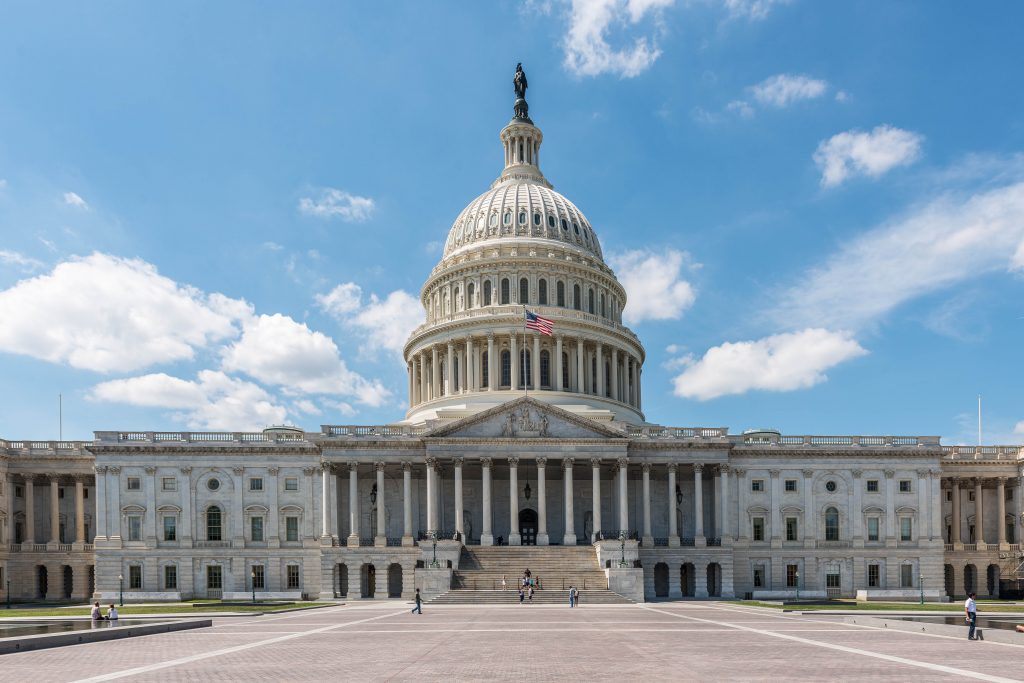
News
By Smart Growth America, August 6, 2020

With the country still in urgent need of more economic relief from the pandemic, Congress continues to be deadlocked on producing a legislative package. Senate Republicans unveiled the Health, Economic Assistance, Liability Protection, and Schools (HEALS) Act last week—their latest legislative response to COVID-19 following the HEROES Act passed by the House more than two months ago.
When it comes to a final stimulus package, Smart Growth America and specifically our LOCUS coalition of responsible real estate developers are looking for a bill that will support those most vulnerable to economic distress, both in the short and long term. Specifically, we are looking for provisions that:
- Help keep people in their homes;
- Create more affordable housing in order to ease the cost burden on low-income households in the event of another economic recession;
- Keep public transit operating to get people to their jobs and essential services.
The HEALS Act proposes a total of $3.313 billion towards rental assistance programs that support those already receiving housing assistance, and to support maintaining public housing programs. Although this is a step in the right direction, there are millions of Americans who are or will soon be facing eviction due to the loss of a job because of the pandemic, causing them to miss rent payments. The final bill should include funding for preventing these evictions, in addition to the bill’s support for Americans who are already receiving rental assistance. It’s not only renters who are at risk of homelessness from job losses—the final bill should also include support for homeowners, which is proposed in the House’s HEROES Act.
Regarding long-term assistance, funding for affordable housing production would not only help meet a persistent need, it would also help ease the financial distress of low-income households in the event of another economic downturn by decreasing the housing cost burden that too many Americans already face. The economy is likely to struggle far beyond this year, and we need to add more affordable housing—and do it in places with low transportation costs—to help support the millions of Americans who are or will be earning less. Funding for affordable housing production should strongly consider location to ensure that low-income households have easy access to essential services and amenities, not only in the case of a public health pandemic, but for promoting the overall sustainability and well-being of communities.
The HEALS Act includes $0 in emergency transit funding to keep cash-strapped transit agencies solvent and operating during the pandemic and during any future recovery as Americans head back to work. This is problematic for many reasons, including the unfair disadvantage that the reduction and/or loss of public transit has on those who rely on it to get to their jobs. This includes many essential workers who are not able to work from home and who have no other way to safely reach their jobs each day. Our Transportation for America program is calling on Congress to include $32 billion for transit relief in the final bill, a call that has been echoed by riders, transit agency executives, and numerous members of Congress.
While Congress appears to be deadlocked for now, they could vote on a final economic stimulus package next week, but there is a wide gulf between the Senate GOP’s HEALS Act and the House’s HEROES Act. Whatever finally passes is likely to be Congress’ final COVID-19 relief package before November’s presidential election.
The table below provides a comparison of the major items we’re tracking in the the Senate GOP’s HEALS Act and the House’s HEROES Act:
Related News

© 2025 Smart Growth America. All rights reserved
Site By3Lane Marketing












